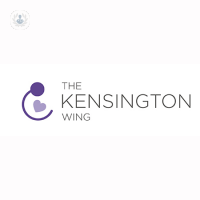What is a multiple pregnancy?
A multiple pregnancy is a pregnancy that involves the development of more than one foetus in the womb, resulting from the fertilisation of two or more ovules. Children who are the result of a multiple pregnancy can be identical twins (sharing the exact same set of genes) or non-identical twins (born from two eggs released at the same time).
The rate at which identical twins occur is the same across the world, but the rate of non-identical twins varies from country to country, according to the age and ethnicity of the mother. In the UK, 16 in 1,000 births involve multiple pregnancy , 98 per cent of which are twins.

What are the symptoms of a multiple pregnancy?
The symptoms that distinguish a multiple pregnancy from a normal pregnancy include:
- more intense morning sickness and vomiting
- extreme drowsiness and fatigue
- rapid weight gain (5 kg in the first trimester, compared to 2-3 kg in a normal pregnancy)
- larger expansion of the uterus
- earlier sensation of foetal movement (two weeks before normal pregnancy)
What are the causes of a multiple pregnancy?
The main factors related to multiple pregnancy are:
- a family history of multiple pregnancy
- previous multiple pregnancy
- getting pregnant later in life
- ethnicity, with multiple pregnancy more common in women of West African ancestry
Fertility treatment in the form of IVF is associated with a higher likelihood of multiple pregnancy – with 24 per cent of successful IVF procedures resulting in multiple pregnancy.
What is the treatment for a multiple pregnancy?
Treatment is based on a more controlled consultation throughout pregnancy since it is a type of pregnancy that carries more risks than normal. This check-up may involve:
- a greater focus on nutrition including iron supplementation and folic acid
- more frequent consultations and scanning
- screening for conditions such as Down’s syndrome
- referral to a perinatologist (maternal-foetal specialist) to coordinate the follow-up
- tocolytic drugs (if a premature birth occurs)
- medications with corticosteroids (to help the lungs of foetuses mature)
- the choice to have an elective birth after 35-37 weeks
What are the risks and complications of a multiple pregnancy?
Multiple pregnancy carries the greater risk of a range of complications including:
- anaemia
- miscarriage
- haemorrhage
- pre-eclampsia
- stillbirth
- preterm birth
- congenital abnormalities
Multiple pregnancy
Mr Keith Duncan - Obstetrics & gynaecology
Created on: 01-29-2016
Updated on: 09-15-2023
Edited by: Sophie Kennedy
What is a multiple pregnancy?
A multiple pregnancy is a pregnancy that involves the development of more than one foetus in the womb, resulting from the fertilisation of two or more ovules. Children who are the result of a multiple pregnancy can be identical twins (sharing the exact same set of genes) or non-identical twins (born from two eggs released at the same time).
The rate at which identical twins occur is the same across the world, but the rate of non-identical twins varies from country to country, according to the age and ethnicity of the mother. In the UK, 16 in 1,000 births involve multiple pregnancy , 98 per cent of which are twins.

What are the symptoms of a multiple pregnancy?
The symptoms that distinguish a multiple pregnancy from a normal pregnancy include:
- more intense morning sickness and vomiting
- extreme drowsiness and fatigue
- rapid weight gain (5 kg in the first trimester, compared to 2-3 kg in a normal pregnancy)
- larger expansion of the uterus
- earlier sensation of foetal movement (two weeks before normal pregnancy)
What are the causes of a multiple pregnancy?
The main factors related to multiple pregnancy are:
- a family history of multiple pregnancy
- previous multiple pregnancy
- getting pregnant later in life
- ethnicity, with multiple pregnancy more common in women of West African ancestry
Fertility treatment in the form of IVF is associated with a higher likelihood of multiple pregnancy – with 24 per cent of successful IVF procedures resulting in multiple pregnancy.
What is the treatment for a multiple pregnancy?
Treatment is based on a more controlled consultation throughout pregnancy since it is a type of pregnancy that carries more risks than normal. This check-up may involve:
- a greater focus on nutrition including iron supplementation and folic acid
- more frequent consultations and scanning
- screening for conditions such as Down’s syndrome
- referral to a perinatologist (maternal-foetal specialist) to coordinate the follow-up
- tocolytic drugs (if a premature birth occurs)
- medications with corticosteroids (to help the lungs of foetuses mature)
- the choice to have an elective birth after 35-37 weeks
What are the risks and complications of a multiple pregnancy?
Multiple pregnancy carries the greater risk of a range of complications including:
- anaemia
- miscarriage
- haemorrhage
- pre-eclampsia
- stillbirth
- preterm birth
- congenital abnormalities


Twin pregnancy: Understanding the care you need
By Professor Mina Savvidou
2024-12-17
A twin pregnancy is a unique journey for expectant parents, that brings both excitement and, understandably, questions regarding prenatal care and delivery. Here, Professor Mina Savvidou, highly revered consultant obstetrician and specialist in fetal maternal medicine, provides clear answers to frequently-asked-questions about twin pregnancies, helping you prepare for a happier, healthier pregnancy. See more
Experts in Multiple pregnancy
-
Mr Keith Duncan
Obstetrics & gynaecologyExpert in:
- Breakthrough bleeding
- Caesarean
- Childbirth
- Multiple pregnancy
- Ultrasound
- High-risk pregnancy
-
Dr Spyros Bakalis
Obstetrics & gynaecologyExpert in:
- Fetal medicine
- Controlling risk pregnancy and birthing
- Multiple pregnancy
- Childbirth
- High-risk pregnancy
- Pregnancy
-
Professor Mina Savvidou
Obstetrics & gynaecologyExpert in:
- Childbirth
- Fetal medicine
- High-risk pregnancy
- Multiple pregnancy
- Prenatal diagnosis
- Pregnancy
-
Dr Gergana Peeva
Obstetrics & gynaecologyExpert in:
- Antenatal care
- Natural childbirth
- High-risk pregnancy
- Caesarean
- Multiple pregnancy
- Fetal medicine
-
Dr Koon Loong Chan
Obstetrics & gynaecologyExpert in:
- Antenatal care
- High-risk pregnancy
- Fetal medicine
- Multiple pregnancy
- Ultrasound
- Amniocentesis
- See all

Dr Duncan Birth - Mr Keith Duncan
Dr Duncan Birth - Mr Keith Duncan
212 Great Portland Street, London. W1W 5AH
No existe teléfono en el centro.
By using the telephone number provided by TOP DOCTORS, you automatically agree to let us use your phone number for statistical and commercial purposes. For further information, read our Privacy Policy
Top Doctors

Westminster Bridge Consulting Rooms at St Thomas' Hospital Private Healthcare.
Westminster Bridge Consulting Rooms at St Thomas' Hospital Private Healthcare.
Westminster Bridge Road, London
No existe teléfono en el centro.
By using the telephone number provided by TOP DOCTORS, you automatically agree to let us use your phone number for statistical and commercial purposes. For further information, read our Privacy Policy
Top Doctors

The Kensington Wing - Private Maternity
The Kensington Wing - Private Maternity
Chelsea and Westminster Hospital, 3rd Floor, 369 Fulham Rd., London
No existe teléfono en el centro.
By using the telephone number provided by TOP DOCTORS, you automatically agree to let us use your phone number for statistical and commercial purposes. For further information, read our Privacy Policy
Top Doctors
-
Dr Duncan Birth - Mr Keith Duncan
212 Great Portland Street, London. W1W 5AH, Central LondonExpert in:
- Ultrasound
- Pregnancy
- Multiple pregnancy
-
Westminster Bridge Consulting Rooms at St Thomas' Hospital Private Healthcare.
Westminster Bridge Road, London , SE1 South Bank LondonExpert in:
- General Surgery
- Orthopaedic surgery
- Plastic surgery, reconstructive and aesthetics
- Endocrinology
- Obstetrics and Gynaecology
- Paediatrics
-
The Kensington Wing - Private Maternity
Chelsea and Westminster Hospital, 3rd Floor, 369 Fulham Rd., London , Central LondonExpert in:
- Maternity care
- Ultrasound
- Pregnancy
- Multiple pregnancy
- Obstetrics and Gynaecology
- Pre-eclampsia
- See all
- Most viewed diseases, medical tests, and treatments
- Tubal factor infertility
- Complex endometriosis
- Fertility preservation
- Female infertility
- Ovulatory disorders
- Surrogacy
- Menopause support
- Pelvic ultrasound
- Maternal mental health
- Nipple discharge







